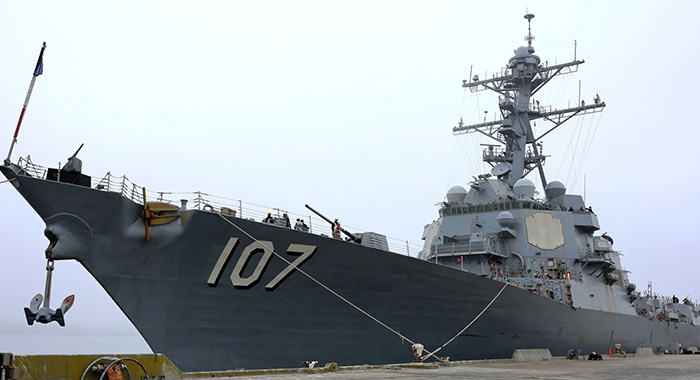The arrival of the USS Gravely, a US warship, in Trinidad on Sunday has intensified concerns over escalating military activity in the Caribbean. This development comes amid warnings from regional leaders and religious figures about the potential destabilization of the area. Prime Minister Kamla Persad-Bissessar of Trinidad and Tobago defended the US presence, emphasizing its role in combating drug trafficking and enhancing national security. However, Barbados Prime Minister Mia Mottley and former CARICOM leaders have expressed alarm, urging a return to dialogue and peace to avoid regional conflict.
The US military’s increased presence, including the deployment of the USS Gerald R. Ford aircraft carrier, is framed by Washington as part of a counter-drug initiative. However, critics argue it may serve as a pretext for broader geopolitical ambitions, particularly concerning Venezuela. The recent bombing of vessels suspected of drug trafficking, which resulted in casualties including Trinidad and Tobago nationals, has further fueled tensions. The US has yet to provide evidence supporting these actions.
Religious leaders from the Antilles Episcopal Conference (AEC) have also voiced concerns, calling for de-escalation and respect for sovereignty. They highlighted the moral and humanitarian challenges posed by militarization and the narcotics trade, urging leaders to prioritize dialogue and regional unity. Meanwhile, Persad-Bissessar stressed the need for immediate action to address crime and drug-related issues in Trinidad and Tobago, citing the country’s proximity to major trafficking routes.
As the region grapples with these challenges, the call for peace remains a unifying theme. Mottley and other leaders have emphasized the Caribbean’s historical commitment to peace and the importance of resolving disputes through international mechanisms like the United Nations. The situation underscores the delicate balance between security needs and the preservation of regional stability.
